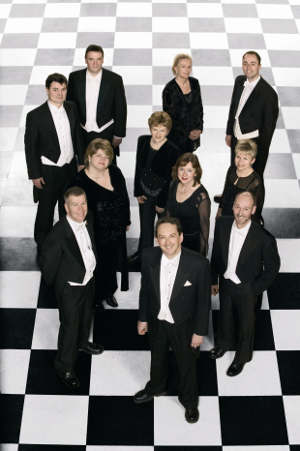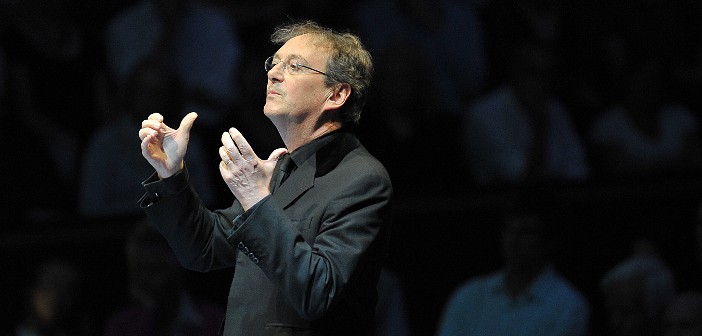Profound in a way perhaps no other music can be, artistic director and conductor Peter Phillips founded the a cappella choir, The Tallis Scholars in 1973 and has spent over forty years introducing modern audiences around the world to renaissance choral works which might otherwise have been entirely neglected. They celebrated their 40th anniversary last year by giving 99 concerts worldwide (an increase from the standard 70) and their enthusiasm for touring seems as keen as ever with forthcoming cities including Dublin, Lyon, Los Angeles, New York, Florence and Rome.
I first discovered The Tallis Scholars thanks to an insightful Southbank Show televised in 1990 in which Melvyn Bragg explored the inspiration driving Phillips on, and what may have initially seemed like too niche a passion ever take flight in the minds of the general public. Having founded his own record label, Gimell in 1980, however, Phillips and the Scholars secured a loyal and international following, with critically acclaimed recordings of music spanning over 150 years. Today, The Tallis Scholars have never been more in demand, and it was with a great deal of anticipation that I took my seat for their latest concert at one of their regular venues, The Cadogan Hall, just off Sloane Square.

Entitled Metamorphosis, the event formed part of the ‘Choral at Cadgoan’ series and featured a programme exploring the four core texts of Christianity, from the joys of birth to the quiet acceptance of death, following Catholic, Anglican or Russian Orthodox beliefs and traditions and including work by composers of the renaissance to the 20th century, from Giovanni da Palestrina and Arvo Part to Igor Stravinsky and Sir John Tavener, with whom Phillips met in 1977 and formed a life-long friendship. For many years Tavener was the only composer who wrote original new works for The Tallis Scholars such as the Lord’s Prayer (1999) and beginning a precedent for other notable composers including Michael Nyman, best known for his film scores, to write works for the choir.
The dying art of a cappella allows today’s listener to not only be transported to another century but invokes a sense of a spirituality quite apart from religious belief, as strange as that might sound. There is no requirement to have a thorough understanding in Latin phraseology or biblical meaning, or believe in God, in order to enjoy the quality of performance from The Tallis Scholars – close your eyes and simply let it wash over you.
The accomplishment of tone and harmony achieved by this small ensemble, made up of ten men and women at any time, is an example of the human voice reaching its highest perfection – pure and unadulterated by modern technology and ‘tricks’ of sound and amplification. Acoustically they soar to the highest realms of beauty and technique and, regardless or of whether or not you consider choral to be typically ‘your thing’, the reality is an unforgettable and revelatory experience.
For more information on forthcoming concerts by the The Tallis Scholars please visit the website.




